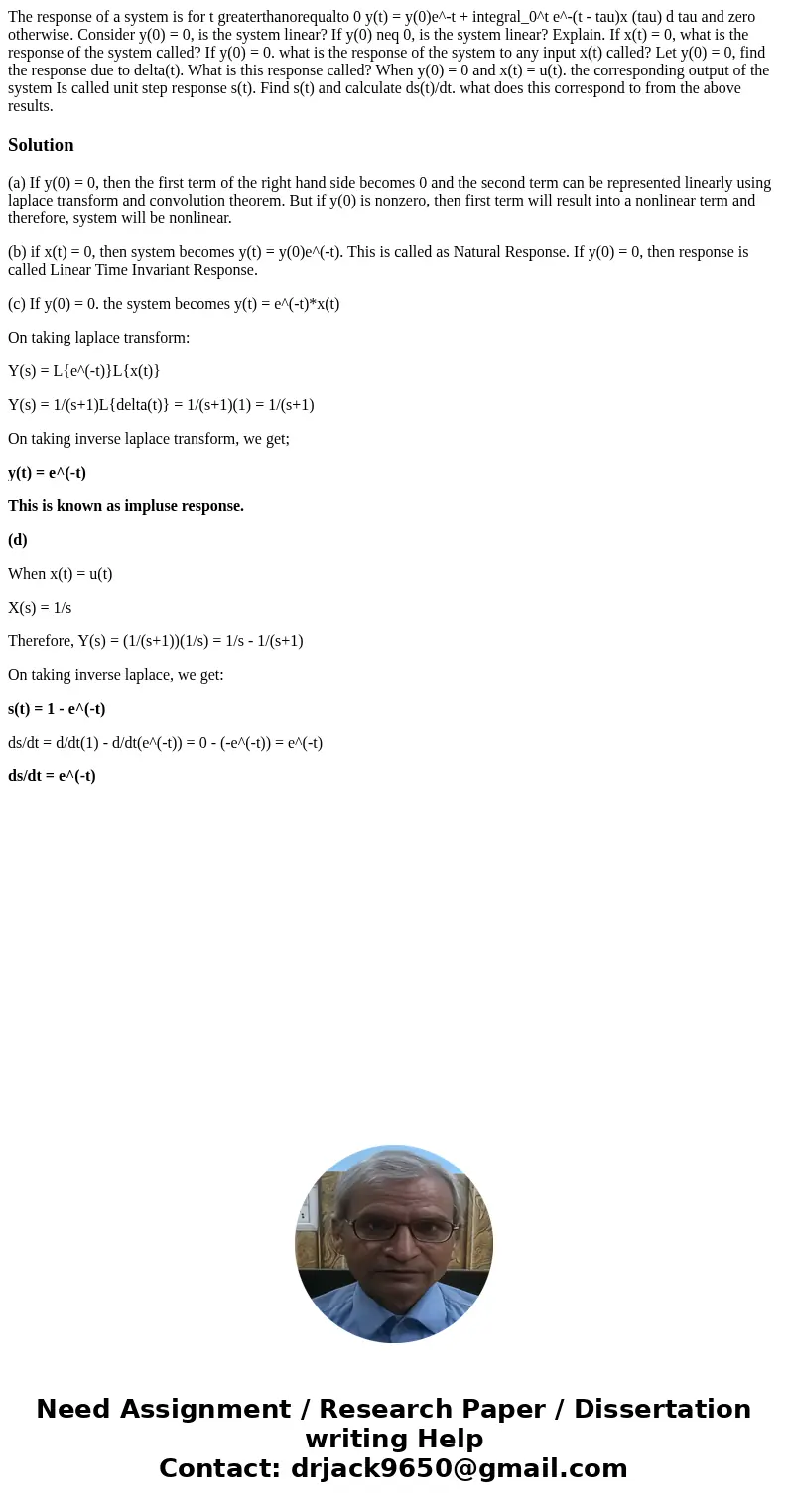The response of a system is for t greaterthanorequalto 0 yt
Solution
(a) If y(0) = 0, then the first term of the right hand side becomes 0 and the second term can be represented linearly using laplace transform and convolution theorem. But if y(0) is nonzero, then first term will result into a nonlinear term and therefore, system will be nonlinear.
(b) if x(t) = 0, then system becomes y(t) = y(0)e^(-t). This is called as Natural Response. If y(0) = 0, then response is called Linear Time Invariant Response.
(c) If y(0) = 0. the system becomes y(t) = e^(-t)*x(t)
On taking laplace transform:
Y(s) = L{e^(-t)}L{x(t)}
Y(s) = 1/(s+1)L{delta(t)} = 1/(s+1)(1) = 1/(s+1)
On taking inverse laplace transform, we get;
y(t) = e^(-t)
This is known as impluse response.
(d)
When x(t) = u(t)
X(s) = 1/s
Therefore, Y(s) = (1/(s+1))(1/s) = 1/s - 1/(s+1)
On taking inverse laplace, we get:
s(t) = 1 - e^(-t)
ds/dt = d/dt(1) - d/dt(e^(-t)) = 0 - (-e^(-t)) = e^(-t)
ds/dt = e^(-t)

 Homework Sourse
Homework Sourse